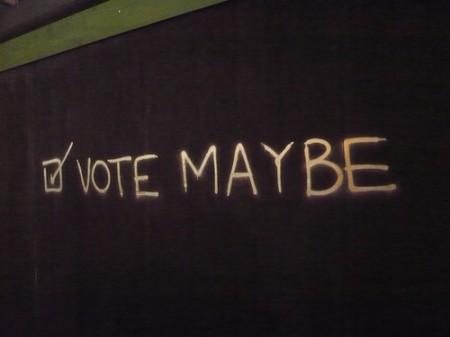
Today, 2 October, in an event likely to be a defining moment in the slow evolution of the European Union, the Irish are voting in a second referendum over the fate of the Lisbon Treaty. The Treaty, which aims to transfer more power to the EU and to streamline operations to match the new challenges faced by the Union as one unity, was rejected last year in Ireland in a campaign that brought emotive issues such as abortion into a debate over a legal document riddled with Euro jargon. The ingenious motto of the ‘No’ camp was, befittingly, “If you don’t know, vote no.” It was more like, “If you don’t know- we’ll invent something for you”.
There were more than a few muted smiles around, particularly among Conservatives in neighboring England, when the Treaty was rejected. A pet project of more Eurocentric nations like France and Germany, the Treaty was received with hostility in smaller countries, and in traditionally Euroskeptic circles, where fears of political unaccountability and loss of control dominated EU-related debates.
But Europhiles persisted and pushed Ireland to think again. Bullying or not, the Irish were encouraged to reconsider and seem to have changed course. With familiarity comes acceptance and with acceptance a sense of purpose more in line with the majority of member states that have already, mostly through parliamentary ratification, accepted the Treaty’s status as the foundation of a new and improved Union.
Although much still depends on the staunchly Euroskeptic Czechs (their president more specifically) and possibly a soon-to-be Tory government in Britain (general elections there are set for the first half of 2010), a ‘Yes’ vote would mark a dramatic U-turn for the Irish in terms of the majority’s views of the EU and its future.
What gives?
The dramatic turn in the economy has been identified as one of the key factors that transformed a once confident Celtic Tiger into a timid and insecure cub. In accepting the need to be part of a pack, the cub seems to be confident that a dry spell in the economy is best tackled collectively and with the backing of a 500 million-strong entity focused on projecting itself in the world arena as one.
But are the Irish- or other skeptically minded nations in Europe- really convinced of this rosy vision?
I would not be so sure. It seems that this sudden turn has come about primarily due to (un-)fortunate circumstances. A deep global crisis, paradoxically perhaps, has pushed Europeans back together and seems to have given the European experiment a new spark; a spark that had all but disappeared one year ago. But circumstantial progress is unlikely to result in steady or predictable gains. While the Irish may have learned a lot about the Treaty in the past year (even if some of this knowledge was forced upon them), they may not have learned to like it any more than they did one year back. A ‘Yes’ vote, it seems, is not stemming from knowledge and appreciation of the importance of the Treaty per se but from fear of the unknown in case Ireland is pushed to the periphery of a union that is determined to move ahead.
What was striking about last year’s vote in Ireland was the absence- in the EU-wide arena- of clear and understandable talk about the Treaty’s importance for the EU as it tackles its existential crisis. The debate was dominated by often ignorant nay-sayers for whom the EU was, and always has been, a convenient bogeyman. The EU largely failed in creating a clear context for the debate and failed, quite dramatically, in selling the Treaty to its own people. The people should be educated about EU matters so that future progress is solid and sustainable. Only an internal logic that supports new degrees of integration – that aligns the hopes of the majority of EU citizens with the institutions that are meant to represent them – will result in a prosperous EU.
While today’s vote will most likely be a victory for the Europhiles, its circumstantial groundings will make the battle to forge a new EU tougher than ever. The Irish, and many others, will have to be convinced that the EU really is the best vehicle for European growth and increased influence globally.
Back in fashion, perhaps, but only for one season.
For an excellent interactive tool on the Treaty’s journey to ratification, check out a map created by one of our partner organizations, the Bertelsmann Stiftung.
For more material on the treaty please check out our extensive library of material on the topic.

